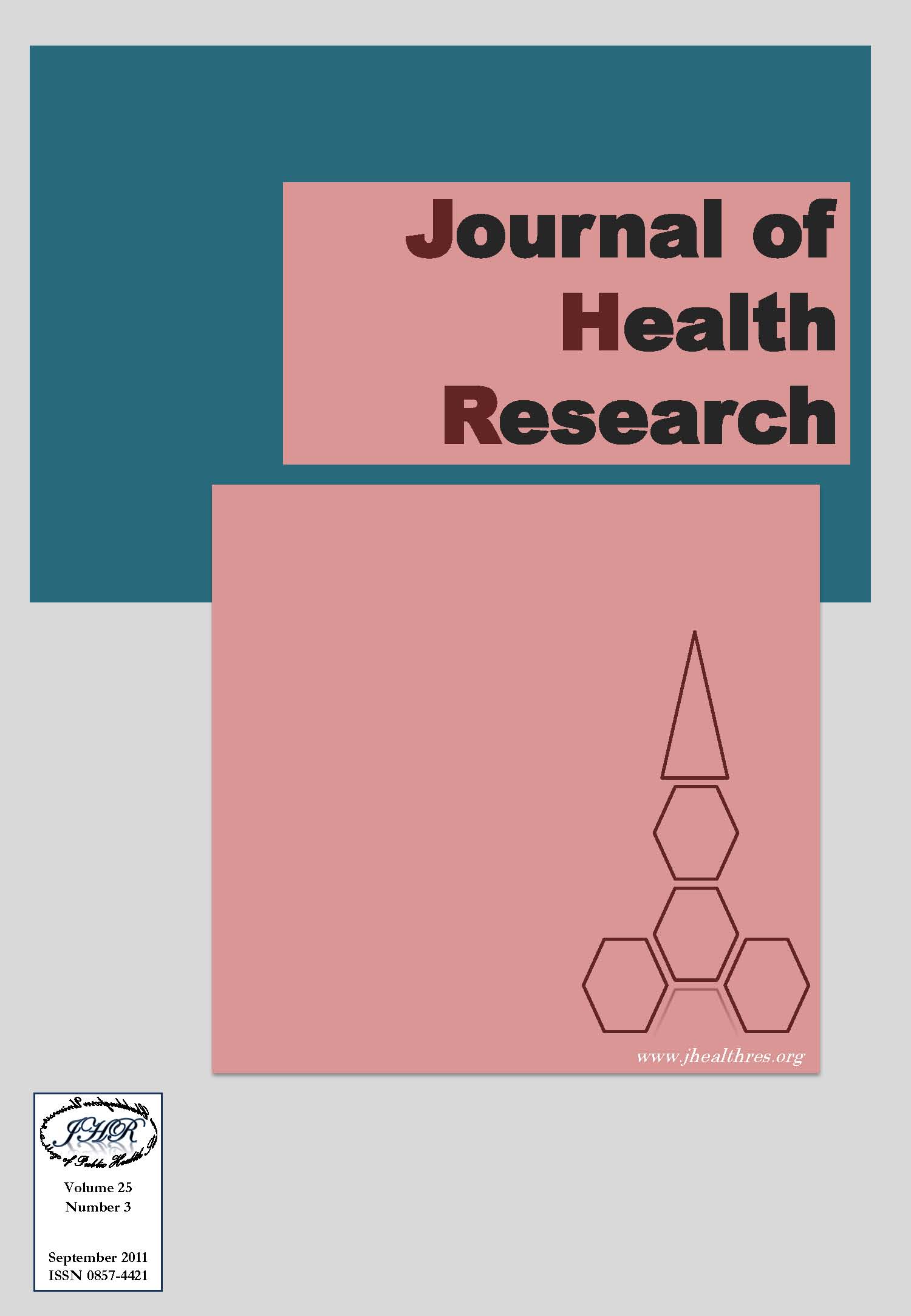Assessment of Performance of Supplementary Feeding Programs for Under-Five Children in Three Tempory Shelters in Tak Province, Thailand
Keywords:
Supplementary feeding, outcome indicatorsAbstract
Malnutrition is frequently a predominant problem in disasters, and supplementary feeding program (SFPs) are often set up in food emergencies. The aim of the study was to assess the performance of the Supplementary Feeding program being implemented by health agencies, as well as to identify areas that needed improvements to ensure better quality service delivery implemented in three temporary shelters among under-five children of Tak province, Thailand. A cross-sectional study with mix methods including secondary data on 1,079 under five children’s between 6- 59 months enrolled in SFP between 2009/2010 and in-depth interviews were conducted with health care providers and mothers/caregivers from these three shelters. Weight gain was measured using weight-for-age z-score values, calculated according to the WHO, (2007). Chi-square test was applied for the analysis with SPSS V. 16 and content analysis for the qualitative methods. There was 51.9 % were male and 48.1 % were female. Similarly 57.18 % were among 6-24 months and 42.82 % were among 25-59 months age groups. The overall cure rate was 39.2 % (SPHERE standard >75 %), defaulter rate was 15.8 % (SPHERE standard<15 %). The assessment of performance of supplementary feeding programs in three temporary shelters in Tak province has shown all outcome indicators below the SPHERE standard.







